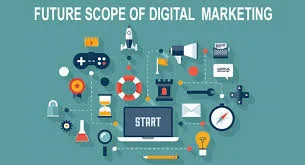The Future of SEO: What Marketers Need to Know This Year (2025)
The Future of SEO: What Marketers Need to Know This Year (2025)
SEO is evolving faster than ever. In 2025, search engines are smarter, user behavior is shifting, and artificial intelligence plays a central role in how content is ranked and delivered. If you're a digital marketer, it's crucial to stay ahead of these changes to remain competitive.
In this blog post, we’ll explore the future of SEO in 2025, the emerging trends, and the key strategies marketers need to adopt right now.
Why SEO Is Changing in 2025
Several key factors are driving changes in the SEO landscape:
-
AI-Powered Search Algorithms (like Google’s MUM)
-
Voice and Visual Search Growth
-
Privacy Regulations and Cookie Restrictions
-
Zero-Click Search Dominance
-
User Experience as a Ranking Factor
Understanding these forces is essential to align your SEO strategy with where the web is headed.
1. AI Is Shaping the Search Engine Algorithm
Google’s MUM (Multitask Unified Model)
MUM enables search engines to understand complex queries across multiple formats and languages. It's more context-aware and can provide answers without needing users to click.
What Marketers Should Do:
-
Use natural, conversational language in content
-
Answer multiple related queries in one piece
-
Implement schema markup to enhance context
2. Voice & Visual Search Optimization
With smart speakers and mobile voice assistants gaining traction, optimizing for voice search is no longer optional. Meanwhile, visual search through tools like Google Lens is influencing shopping and discovery.
Key Tips:
-
Focus on long-tail, question-based keywords
-
Use alt tags and descriptive filenames for images
-
Create visual sitemaps and structured data
3. Zero-Click Searches Are Rising
Google increasingly answers queries directly on the results page (think featured snippets, knowledge panels, etc.). These "zero-click" searches mean users get their answers without visiting your site.
How to Stay Visible:
-
Optimize for featured snippets (answer questions clearly in <40 words)
-
Use structured data for rich results
-
Provide clear and concise content summaries
4. UX & Core Web Vitals Matter More Than Ever
Google continues to emphasize user experience through Core Web Vitals:
-
Largest Contentful Paint (LCP)
-
First Input Delay (FID)
-
Cumulative Layout Shift (CLS)
Action Steps:
-
Optimize page load times and mobile responsiveness
-
Avoid intrusive interstitials
-
Improve layout stability and navigation
5. E-E-A-T Signals and Trustworthiness
Google evaluates content quality based on:
-
Experience
-
Expertise
-
Authoritativeness
-
Trustworthiness (E-E-A-T)
This is especially vital for YMYL (Your Money Your Life) topics like health, finance, and legal content.
SEO Best Practices:
-
Showcase author credentials
-
Link to reputable sources
-
Maintain content accuracy and freshness
6. AI Content: Helpful or Harmful?
AI-generated content is more prevalent, but Google is prioritizing helpful, original, and human-centric content.
What to Keep in Mind:
-
Use AI tools for ideation and drafts, but human-edit for quality
-
Avoid keyword stuffing and generic fluff
-
Ensure content provides real value to users
7. Local SEO & Hyperpersonalization
In 2025, local search is more nuanced with personalized results based on intent, location, and past behavior.
Optimization Tips:
-
Keep Google Business Profile updated
-
Encourage and respond to reviews
-
Use localized keywords and content
Conclusion: SEO in 2025 Requires Agility
Search engine optimization in 2025 isn’t about chasing algorithms—it’s about understanding users. The key is to create valuable, accessible, and trustworthy content while staying on top of evolving tech like AI, voice, and visual search.
Marketers who stay agile and data-driven will thrive in this new SEO landscape.
.jpg)



Comments
Post a Comment